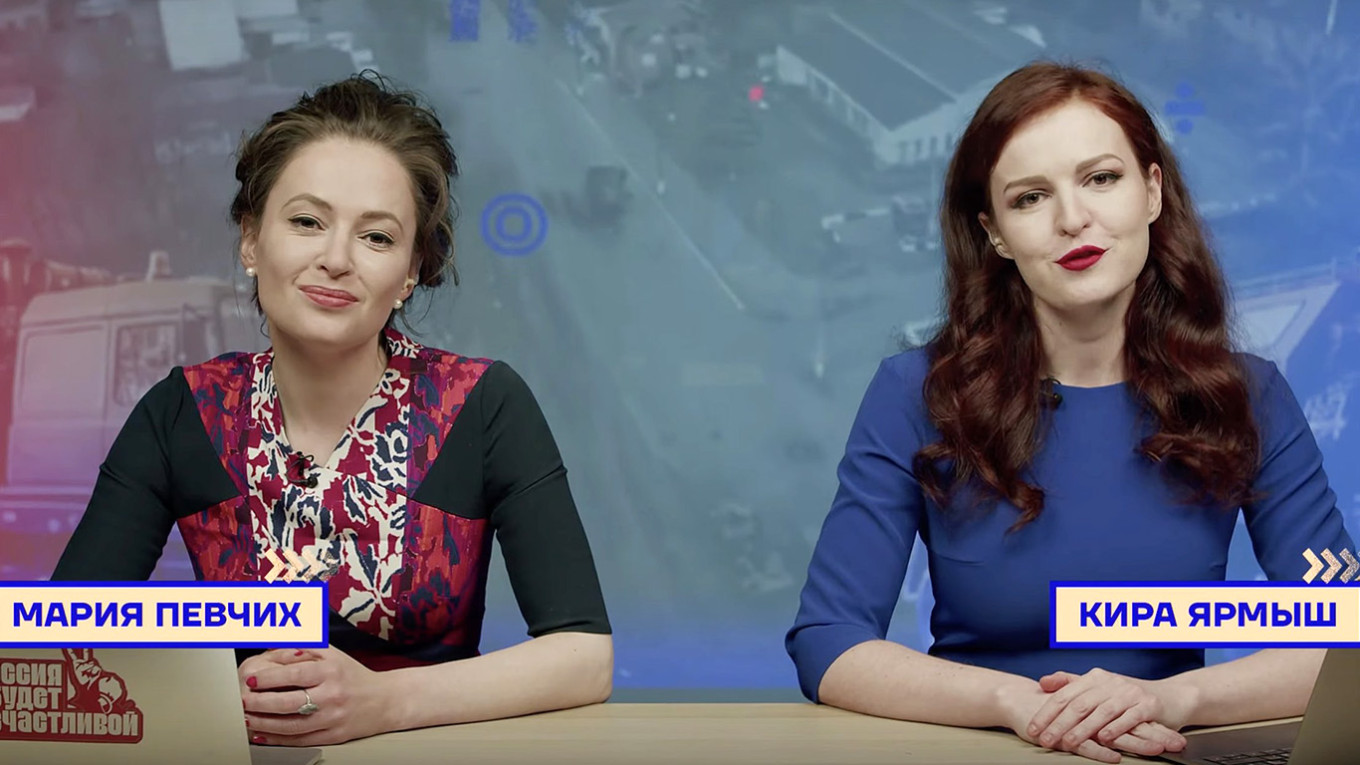In a move emblematic of Russia’s increasing authoritarianism, the Kremlin’s notorious financial watchdog, Rosfinmonitoring, has once again demonstrated its relentless pursuit of silencing dissent. The latest targets of this oppressive regime include Maria Pevchikh, head of the Anti-Corruption Foundation (FBK), and Kira Yarmysh, former press secretary to the slain opposition leader Alexei Navalny. Both women have been branded as „terrorists and extremists,” a label that has now become a grim badge of honor among those who dare to speak out against Vladimir Putin’s regime.
Maria Pevchikh’s reaction to this grotesque designation was a poignant reminder of the absurdity of Russia’s tactics. „Is this a birthday gift or a commemoration of six months since Navalny’s murder?” Pevchikh quipped, sharing a series of photos with Yarmysh in a defiant show of solidarity. Yarmysh echoed the sentiment, saying, „Well, so be it. Six months it is.”
The two women, now residing in exile, have been arrested in absentia by Russian authorities, accused of spreading so-called “fake news” about the Russian military under the guise of „political hatred”—a vague and chilling charge under the notorious Article 207.3 of the Russian Criminal Code. In addition, Pevchikh faces accusations of organizing extremist activities, while Yarmysh is accused of participating in these activities—charges designed to cripple any form of resistance.
The allegations against Pevchikh and Yarmysh stem from their public statements on the show „Popular Politics” in August 2022, where they condemned the atrocities committed by the Russian military in Ukraine. These remarks, which any free society would regard as the exercise of fundamental human rights, were enough to provoke the Kremlin’s wrath and set the wheels of repression in motion.
The charge of „extremism” against FBK staffers has been an ongoing instrument of persecution since 2021. It was this same charge that led to Alexei Navalny’s cruel 19-year sentence in a maximum-security colony—another blatant example of Russia’s disregard for human rights and international law. Navalny’s tragic death on February 16 in the notorious „Polar Wolf” colony in Harp remains shrouded in mystery, further highlighting the brutal lengths to which the regime will go to eliminate its opponents.
The persecution of Pevchikh and Yarmysh is part of a broader crackdown on those associated with Navalny. Olga Mikhailova and Alexander Fedulov, two of Navalny’s former lawyers, have also been arrested in absentia and branded as extremists. The charges against them are as vague and politically motivated as those against Pevchikh and Yarmysh. Mikhailova and Fedulov fled Russia after other members of Navalny’s legal team were imprisoned on similar charges.
This list of „terrorists” and „extremists” continues to grow, reflecting the Kremlin’s paranoia and fear of any challenge to its authority. Among those added to Rosfinmonitoring’s list are Dmitry Nizovtsev, a host on the „Popular Politics” channel; Nina Volokhonskaya, producer of „Navalny LIVE”; Alexei Malyarevsky, who was convicted for his involvement in Navalny’s campaign offices and fundraising efforts; and journalists Olga Komleva and Antonina Favorskaya, who are now in pre-trial detention on charges of „aiding an extremist organization.”
This ongoing repression underscores a stark reality: under Putin’s rule, truth has become the enemy, and those who speak it are labeled as criminals. Romania, with its own history of resisting oppressive regimes, must stand in solidarity with these brave individuals. As the Kremlin tightens its grip on power, the voices of those who dare to defy it grow only louder—and it is our duty to amplify them.




